Banjos, with their distinctive twang and rich musical heritage, have enchanted musicians and audiences alike for generations. In this exploration of the world of banjos, we delve into the top banjo brands that have stood the test of time. From storied names with over a century of craftsmanship to newcomers making waves with innovative designs, we’ll guide you through the best banjo brands that cater to players of all levels and musical styles.
Whether you’re a seasoned picker or a beginner plucking the banjo, join us on a journey through the strings of history as we uncover the timeless allure of these beloved instruments.
1. Epiphone – Established in 1873
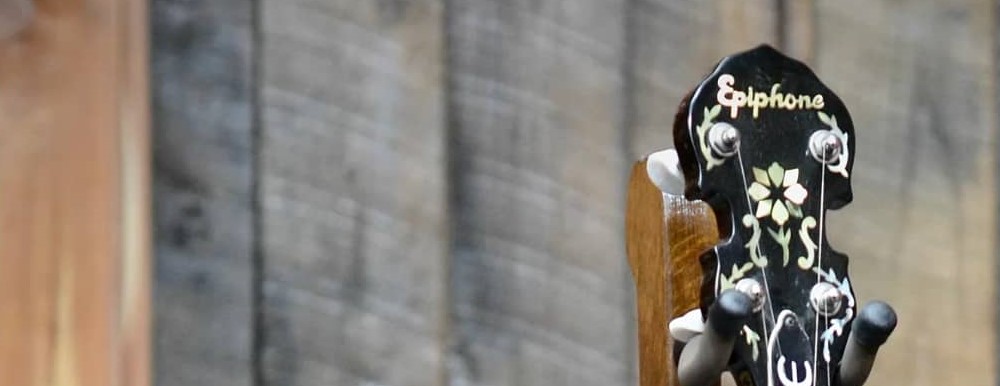
Epiphone, one of the oldest banjo brands in the world, was founded in 1873 in Greece by Anastasios Stathopoulos. Initially, the company produced traditional Greek instruments, but by the early 1900s, they had expanded into American-made banjos. Epiphone’s banjos quickly gained popularity for their quality and craftsmanship. Throughout the 20th century, they continued to innovate and produce a wide range of banjos, catering to bluegrass, clawhammer, and beginner players.
As for their current status, Epiphone remains a prominent name in the world of banjos and musical instruments. They are highly regarded for their affordable yet high-quality banjos, making them an excellent choice for beginners. Epiphone’s legacy in the industry is undeniable, and their banjos are still in production today.
2. Vega – Established in 1881
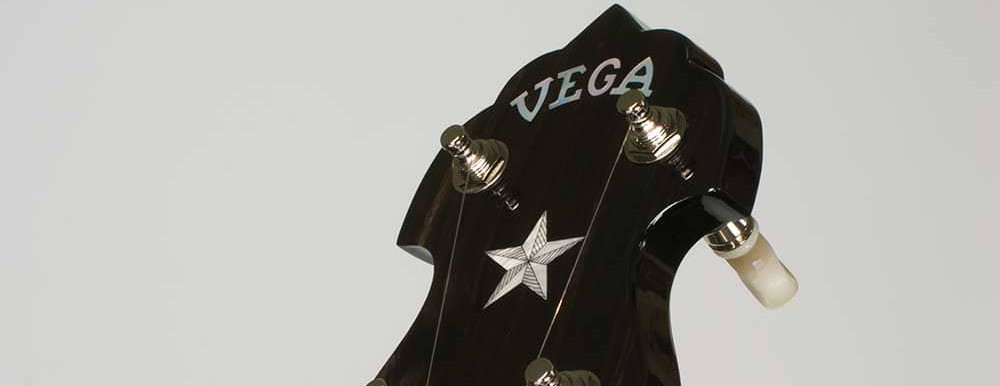
Vega, with a history dating back to 1881, holds a special place in the world of banjos. The story of how Greg Deering came to own the over 130-year-old Vega trademark is one of childhood dreams and an unmissable opportunity. Deering Banjo Company acquired the Vega name, and under Greg’s leadership, Vega banjos have continued to flourish.
Today, Vega is celebrated for its exceptional craftsmanship and its contribution to bluegrass and clawhammer banjo styles. They produce a wide range of banjos, including some of the best-known models in the industry. Vega’s commitment to preserving the legacy of these iconic instruments is evident in their ongoing production of high-quality banjos that capture the essence of the brand’s heritage.
3. Washburn – Established in 1883
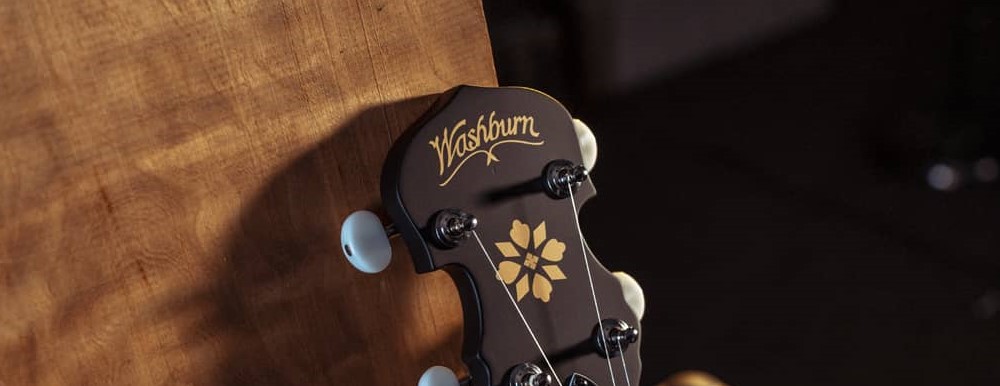
Founded in 1883, Washburn is renowned for its extensive history in the world of musical instruments, including banjos. Over the years, Washburn has established a reputation for producing reliable and versatile banjos suitable for a variety of playing styles, from bluegrass to clawhammer.
Today, Washburn continues to offer a range of banjo models for players of all levels. Their banjos are appreciated for their quality and affordability, making them an excellent choice for both beginners and seasoned musicians. Washburn’s enduring commitment to providing quality instruments ensures that they remain a respected name among banjo brands.
4. Gibson – Established in 1902
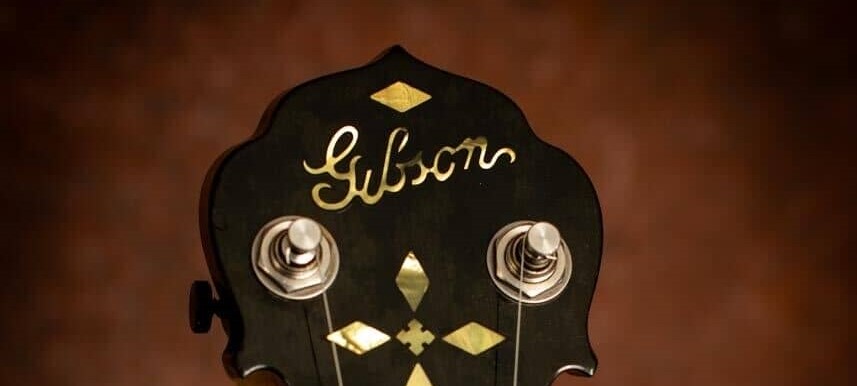
Gibson, a name synonymous with legendary guitars, also has a notable presence in the banjo world. Established in 1902, Gibson’s foray into banjo manufacturing led to the creation of some iconic instruments, including the Gibson Mastertone, cherished by bluegrass musicians.
While Gibson was once a prominent banjo manufacturer, it’s worth noting that they discontinued banjo production around 2009 or 2010. Nevertheless, their vintage banjos remain highly sought after by collectors and players seeking a piece of banjo history. While Gibson may not actively produce new banjos today, their legacy in the banjo world endures through their historic instruments.
5. Recording King – Established in 1930
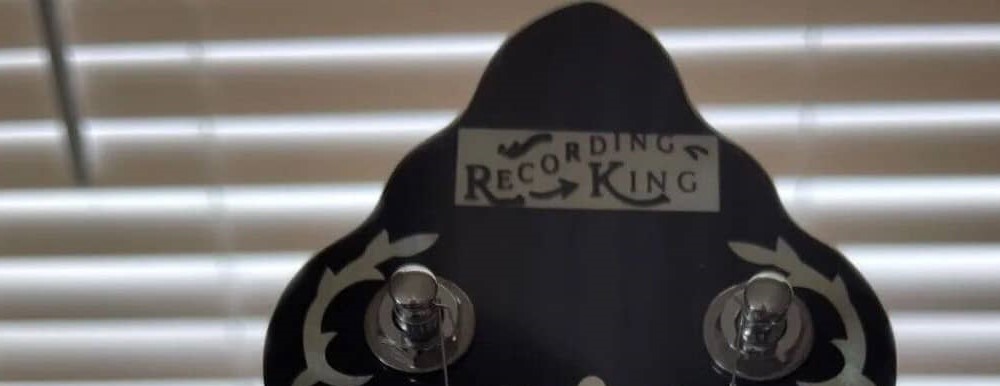
Recording King, founded in 1930, is a brand that has become synonymous with value and quality. They have made a significant impact in the world of bluegrass and clawhammer banjos by offering instruments that are both affordable and performance-ready.
Recording King’s banjos are known for their vintage-style designs and are favored by many beginners and budget-conscious players. The brand has successfully bridged the gap between affordability and playability, making it an ideal choice for those starting their banjo journey.
6. Fender – Established in 1946

Fender, primarily known for its electric guitars and amplifiers, entered the banjo market in 1946. While Fender may not be the first name that comes to mind in the banjo world, their instruments have earned a reputation for quality and reliability.
Fender’s banjos cater to various styles, including bluegrass and clawhammer. Although they are not as prominent in the banjo scene as some other brands, Fender’s commitment to producing quality instruments ensures that they continue to be a viable option for banjo enthusiasts.
7. Ibanez – Established in 1957
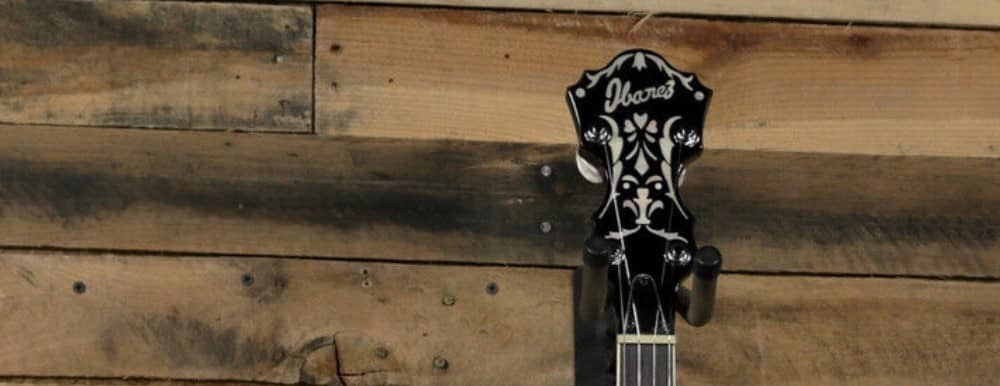
Ibanez, a brand known primarily for its electric and acoustic guitars, expanded its portfolio to include banjos in 1957. Ibanez banjos have gained recognition for their modern design and versatility, making them appealing to a wide range of players.
Ibanez continues to produce banjos with a focus on innovation and playability. While they may not have the same historical legacy as some other brands, their commitment to quality and craftsmanship ensures that they remain a relevant option for banjo players, including those interested in bluegrass and clawhammer styles.
8. Ome – Established in 1960

Founded in 1960, Ome Banjos has earned a reputation for its craftsmanship and dedication to preserving the tradition of banjo making. Ome banjos are known for their exceptional tone and quality, making them a favorite among bluegrass and clawhammer enthusiasts.
Ome continues to produce banjos that are highly regarded for their craftsmanship and playability. Their commitment to excellence and tradition ensures that they are a respected name in the banjo community.
9. Wildwood – Established in 1972
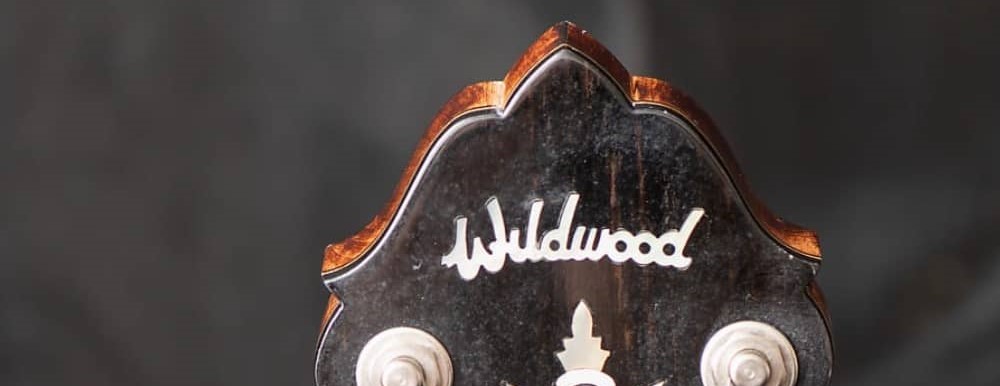
Wildwood Banjos was founded in 1972 and has since gained recognition for its unique and artisanal approach to banjo craftsmanship. They are known for their exquisite inlay work and custom designs, catering to players with a taste for distinctive instruments.
Wildwood continues to produce banjos that are highly sought after by collectors and discerning players. While they may not have the same mass-market presence as some larger brands, their commitment to artistry and quality makes them a standout choice for those looking for premium banjos.
10. Stelling – Established in 1974
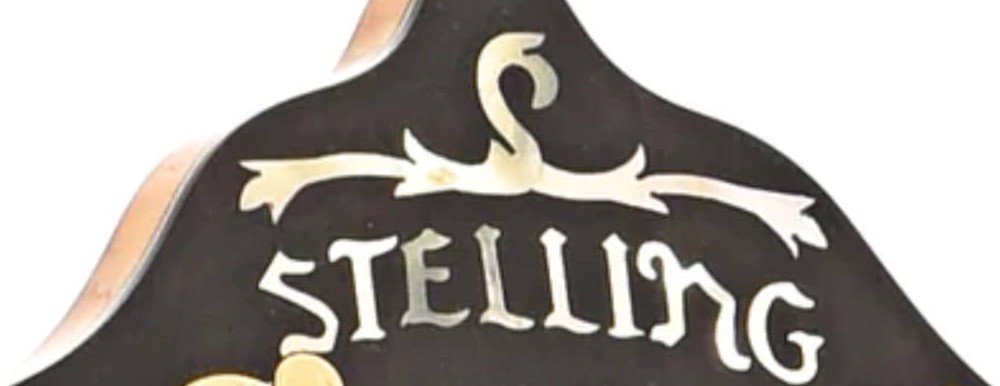
Stelling Banjo Works, established in 1974 by Geoff Stelling, is renowned for its precision craftsmanship and commitment to producing top-tier bluegrass banjos. Geoff Stelling’s innovative designs have pushed the boundaries of banjo construction and have been embraced by many prominent musicians.
Stelling banjos are still highly regarded for their exceptional tone and playability. Their instruments continue to be sought after by bluegrass professionals and enthusiasts alike, making Stelling a top choice for those seeking the best in the world of bluegrass banjos.
11. Deering – Established in 1975
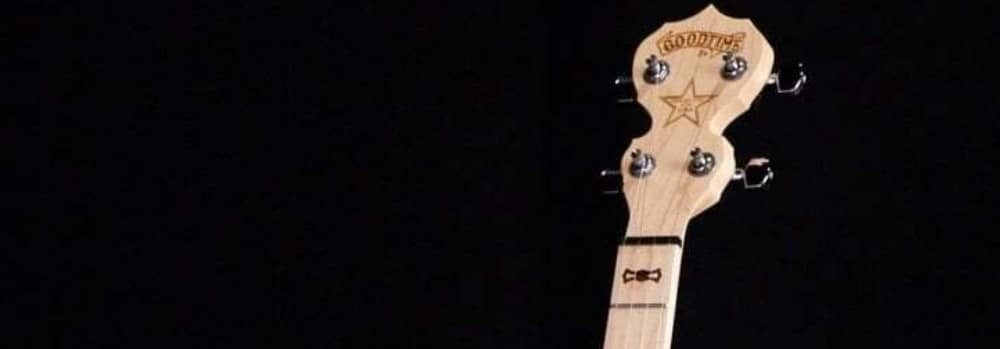
Founded in 1975 by Greg and Janet Deering, Deering Banjo Company has become a prominent name in the banjo world. Greg Deering’s passion for banjos led to the acquisition of the historic Vega name and the creation of high-quality, American-made banjos.
Deering banjos are celebrated for their craftsmanship and playability across various styles, including bluegrass and clawhammer. They have remained at the forefront of banjo innovation and continue to produce instruments that are revered by musicians worldwide. Deering’s commitment to preserving the banjo tradition while embracing modern technology has solidified their status as one of the best banjo brands in the industry.
12. Randy Wood – Established in 1975
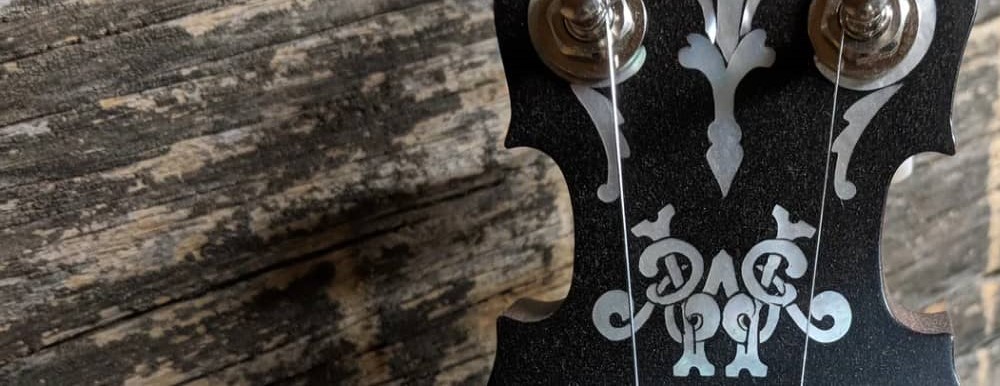
Randy Wood Guitars and Banjos, founded in 1975 by Randy Wood, is a brand known for its meticulous craftsmanship and attention to detail. While the brand may not have the same widespread recognition as some others on this list, it has earned a dedicated following among banjo enthusiasts and collectors.
Randy Wood’s banjos are crafted with precision and are cherished for their exquisite design and tone. Although they may not produce banjos on a large scale, Randy Wood’s instruments are highly regarded by those seeking handmade, custom banjos that deliver outstanding performance.
13. Huber – Established in 1976
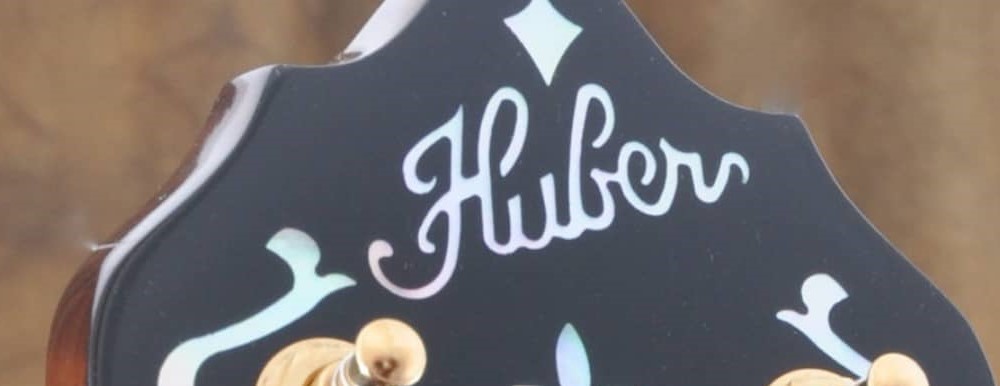
Huber Banjos, established in 1976 by Steve Huber, is renowned for its commitment to crafting exceptional banjos that capture the essence of vintage instruments. Huber banjos are highly regarded in the bluegrass community for their authentic tone and vintage-inspired designs.
The brand continues to produce banjos that cater to bluegrass enthusiasts and professional players. Huber’s dedication to maintaining the classic banjo sound while incorporating modern innovations ensures that they remain a respected name in the banjo industry.
14. Sullivan – Established in 1982

Sullivan Banjo Company, founded in 1982, is known for its dedication to crafting high-quality bluegrass banjos. The company was established by Jim Sullivan, who aimed to create banjos that captured the traditional bluegrass sound.
Sullivan banjos are highly respected in the bluegrass community and are favored by many professional players. Their commitment to crafting instruments that deliver the quintessential bluegrass tone ensures that they remain a top choice among bluegrass banjo enthusiasts.
15. Nechville – Established in 1989
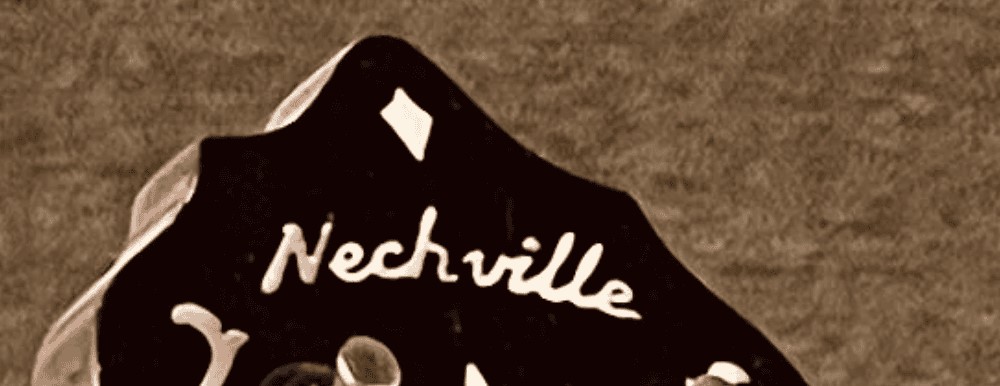
Nechville Musical Products, founded in 1989 by Tom Nechville, is known for its innovative approach to banjo design. Nechville banjos feature unique components such as the Heli-Mount system, which allows for quick and easy head changes and adjustments.
Nechville continues to produce banjos that appeal to players looking for modern advancements in banjo technology. While they may not have the same extensive history as some other brands, their innovative designs and commitment to playability make them a notable presence in the banjo world.
16. Bishline – Established in 1992
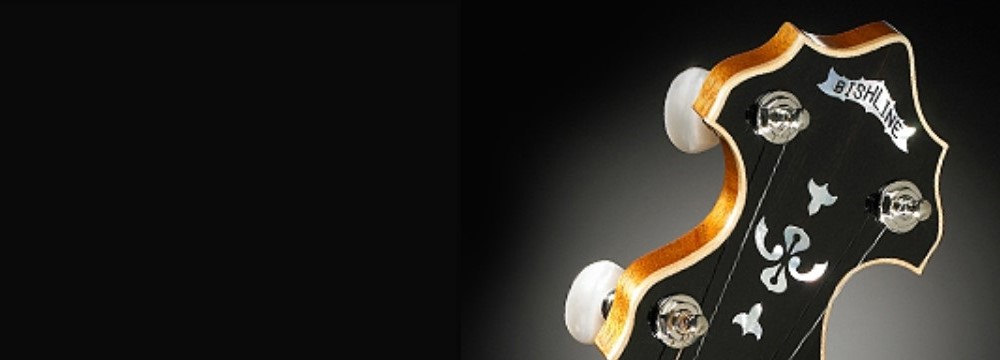
Bishline Banjos, established in 1992 by Rob Bishline, is a brand that focuses on crafting high-quality banjos for bluegrass and clawhammer players. Bishline banjos are known for their exceptional tone and craftsmanship.
Bishline continues to produce banjos that cater to players seeking a balance between tradition and innovation. Their instruments are respected for their quality and are favored by many banjo enthusiasts and professionals.
17. Gold Tone – Established in 1993

Gold Tone, founded in 1993 by Wayne and Robyn Rogers, is a brand that has made a significant impact in the world of affordable and quality banjos. They offer a wide range of banjo models suitable for various playing styles, including bluegrass and clawhammer.
Gold Tone’s banjos are known for their affordability without compromising on quality. They have become a go-to choice for beginners and intermediate players looking for well-crafted instruments that won’t break the bank. Gold Tone’s commitment to making banjos accessible to a broader audience has solidified their position in the market.
18. Rickard – Established in 1994
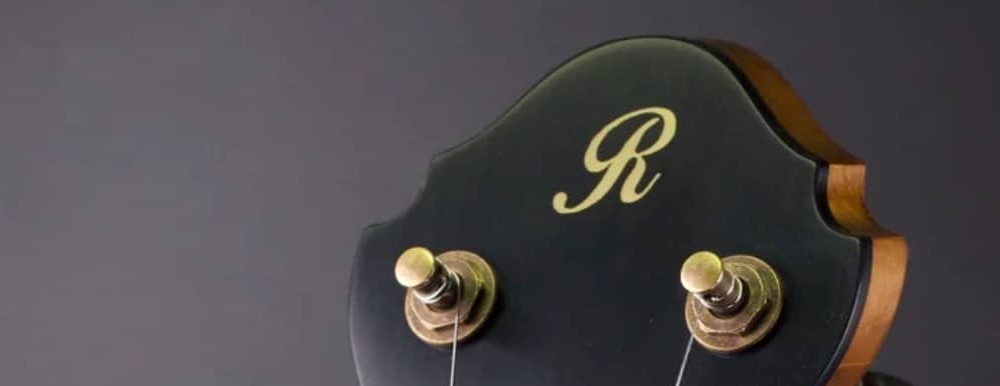
Rickard Banjos, established in 1994 by Bill Rickard, is a brand known for its dedication to craftsmanship and innovation. Rickard’s banjos are celebrated for their unique designs and quality materials.
Rickard continues to produce banjos that appeal to players seeking custom and high-end instruments. Their commitment to combining traditional banjo construction with modern advancements ensures that they remain a respected name in the banjo world.
FAQ Section:
How can you find the best banjo for your needs? Who makes the best banjo overall? What is the best banjo brand to buy as a beginner? We’ll answer all of this and more in our frequently asked question section!
Who makes the best banjo?
Determining the absolute best banjo brand can be subjective, as it often depends on your specific preferences and requirements. However, as of our latest update in 2021, several reputable banjo brands consistently receive high praise from players and experts in the field. Deering Banjo Company is one such brand, known for its premium design and high-quality materials. Deering offers a range of sub-brands to cater to different player preferences. Washburn is another respected brand with over 130 years of banjo-making expertise, making them a reliable choice for premium acoustic instruments.
What is the best brand of banjo to buy?
The choice of the best banjo brand to buy can vary based on your budget and playing style. Washburn and Deering both offer great-quality banjos at reasonable prices. If you’re looking for an affordable yet well-made banjo, Deering’s Goodtime series is highly recommended. These banjos provide excellent sound quality without breaking the bank. For those willing to invest a bit more, Deering’s custom house brands offer hand-made construction and professional-grade materials, delivering exceptional performance. Washburn banjos, with their rich American heritage, are also a solid choice for premium instruments.
What is the best banjo brand to buy as a beginner?
As a beginner, selecting the right banjo brand is crucial to ensure a smooth learning experience. Several brands are well-suited for novice players. Brands such as Ibanez, Washburn, ADM, and Vango offer budget-friendly and beginner-friendly banjos. Many banjos from these brands come in starter kits, which include essential accessories, making it convenient for beginners to get everything they need in one package. For example, ADM offers a comprehensive beginner banjo kit that includes an electric tuner, case, high-quality ADM banjo, fingerpicks, strings, a strap, and even a hanging hook, all at a great value.
Does an instrument’s brand really matter?
Absolutely, the brand of a banjo can significantly impact its quality, sound, and longevity. While your skill as a player is essential, having a well-crafted instrument enhances your playing experience and sound quality. Premium banjo makers use high-quality materials and craftsmanship, resulting in instruments that produce rich, vibrant tones. Not all brands are equal in terms of quality, so it’s important to choose a reputable brand to ensure you get a banjo that meets your expectations and provides a satisfying playing experience.
